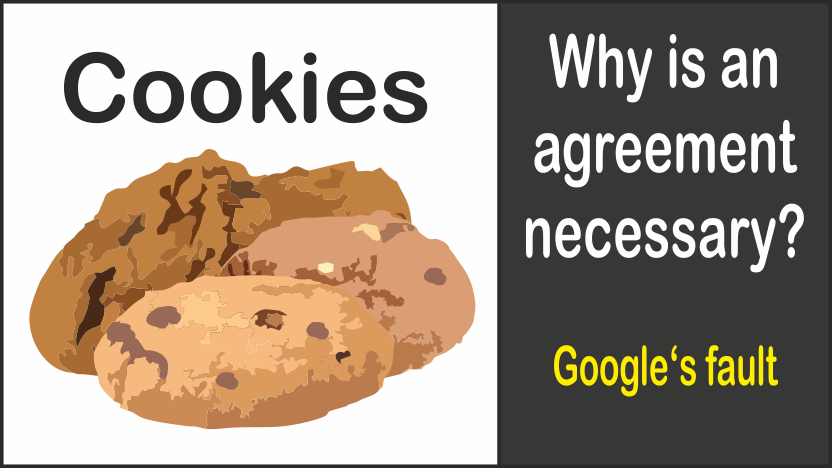
On many pages you can see so-called cookie notes, where you have to agree in the case of a further use of the website. Why is this necessary? The answer is explained in this article.
Table of contents

EU guideline from 2009
Since 2009 there exists a EU cookie guideline. The aim of this guideline is to require the user's permission for setting technically unnecessary cookies. This should reduce the excessive user tracking for advertising purposes and gives the users the ability to protect their personal data as good as possible. According to this directive, a notice on the page is sufficient for technically necessary cookies. For all other cookies, including advertising third-party cookies, an explicit user conset is required. This means that such a cookie may be set only after the agreement of the user ("opt-in"). In reality, the cookies are most times already set on the first call of the page and the users are therefore only informed later about it (so-called "opt-out"). The reason for this is simply that the first option is often impossible or very difficult to implement and would only scare off the users.
It's Google's fault
Previously, it was sufficient to inform the user about the cookies in the privacy policy. The reason for the many cookie messages now is simply a guidline from Google which is for all Adsense users. Due to the fact, that a very large percentage of websites use the Adsense program, the large number of pages with such a message is not surprising.
Cookies on this website
This website uses cookies for the optimal provision of all services, to personalise content and ads and to analyse the traffic of this website. In addition, the information is shared with partners (see Privacy Policy). By using this website, you agree to its use of cookies.

